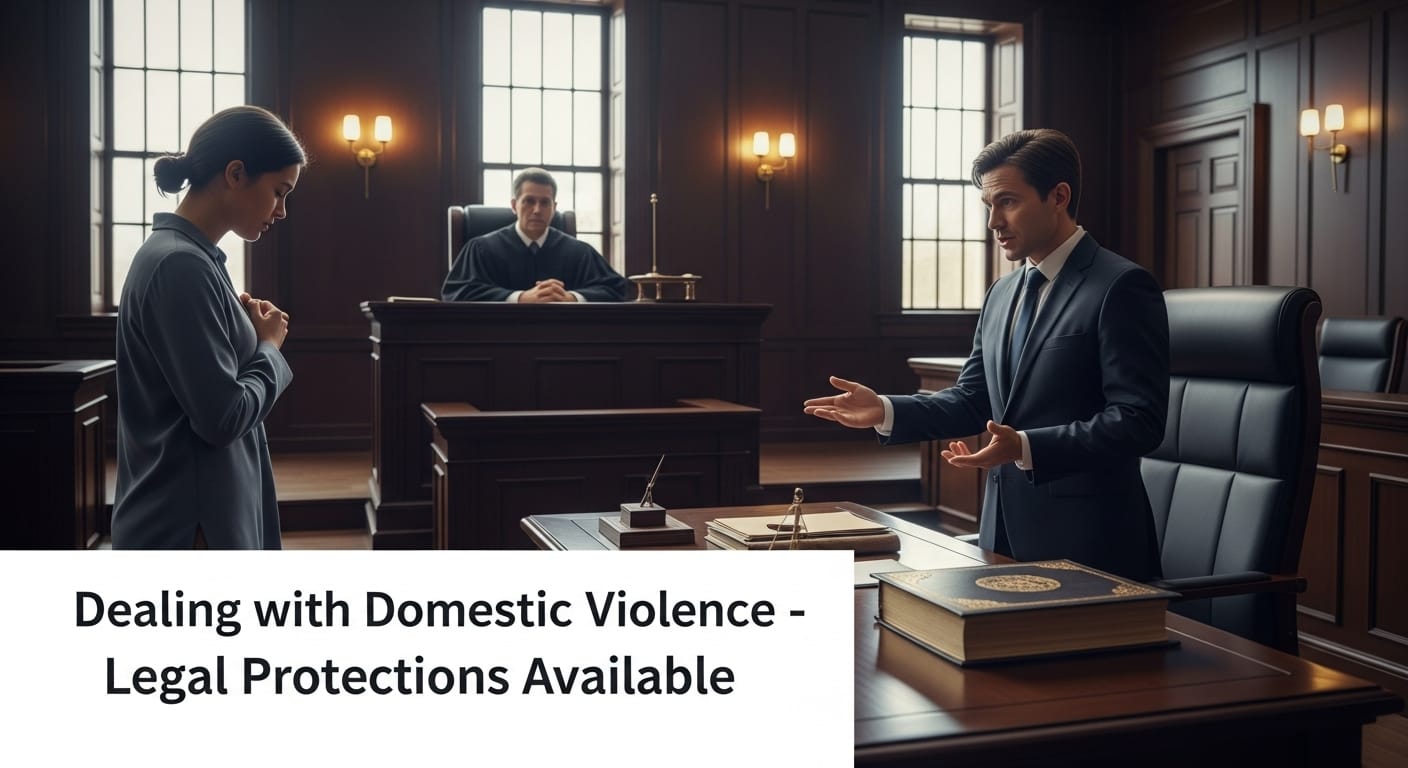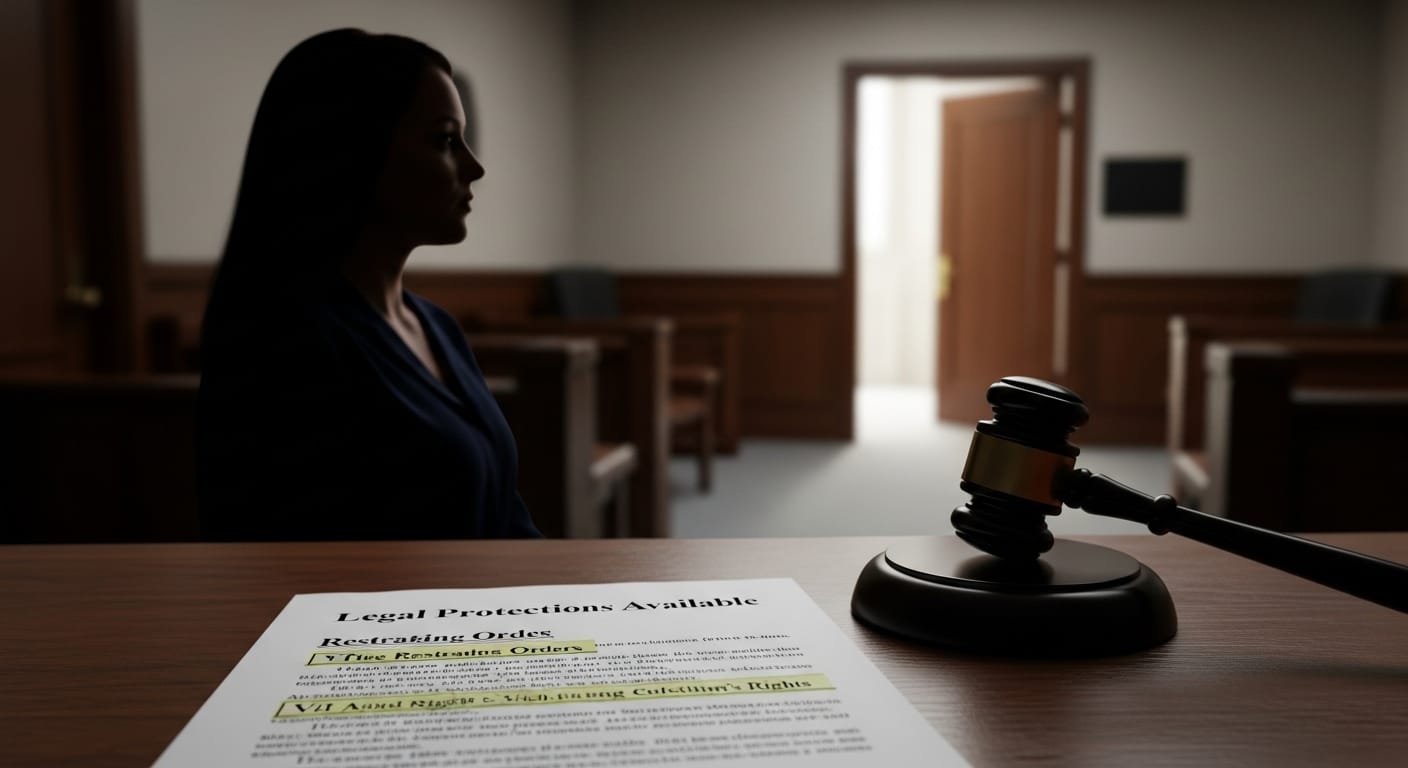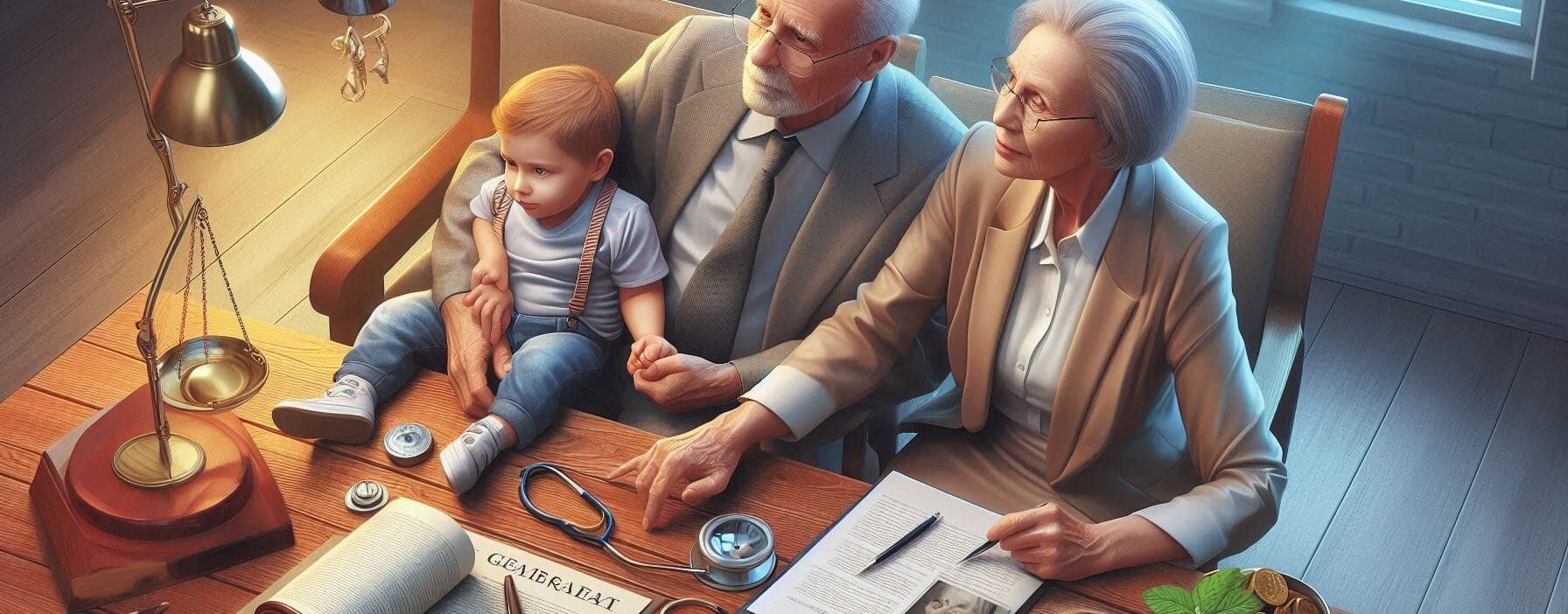Domestic violence isn’t just a difficult topic; it’s a life-altering experience that many people face every day. And while it’s tempting to start with a joke about how bad things can get when someone steals your last slice of pizza, let’s not kid ourselves.
Domestic violence is serious, and the effects ripple far beyond just one person. But here’s the good news: there are legal protections out there designed to help survivors reclaim their safety, dignity, and peace of mind.
The legal system might not be perfect—it sometimes feels like navigating a corn maze blindfolded—but when it comes to domestic violence, it’s armed with tools that can make a real difference. Understanding these protections isn’t just about knowing your rights; it’s about taking back control. Let’s break it down in a way that’s easy to digest, and maybe even a little empowering.

Top Takeaways and Key Concepts
Use Restraining Orders: Obtain emergency or long-term protective orders to legally prevent abuser contact.
Seek Shelters and Crisis Centers: Utilize shelters for immediate safety, counseling, and legal support.
Protect Children: Work with family courts to arrange custody and supervised visitation if needed.
Access Legal Aid: Legal aid organizations provide free or low-cost support for filings and representation.
Document Evidence: Collect texts, photos, reports, and witness statements securely to strengthen your case.
Summary of This Article
Please Note: This post may contain affiliate links. If you click one of them, we may receive a commission at no extra cost to you. As an Amazon Associate, I earn from qualifying purchases.
The article outlines critical legal protections for domestic violence survivors, including restraining orders, emergency shelters, and custody modifications for children. It emphasizes that domestic violence is a criminal act, and pressing charges or invoking no-drop policies can hold abusers accountable. Legal aid organizations help survivors navigate filings, court processes, and custody disputes affordably. Workplace protections ensure survivors are not penalized professionally, while thorough documentation of abuse strengthens legal claims. Overall, understanding and using these resources empowers survivors to reclaim safety, stability, and legal rights.
Understanding Restraining Orders

Let’s start with the bread and butter of legal protections: restraining orders. If you’ve ever wished for a magical force field to keep someone away, a restraining order is basically the next best thing, minus the glowing lights.
A restraining order, also known as a protective order, is a legal document that sets clear boundaries. It can prohibit an abuser from contacting you, coming near you, or even stepping within a certain distance of your home, workplace, or child’s school. Violating it? That’s a big no-no and can lead to immediate consequences like arrest.
By the way, there are different types of restraining orders depending on your situation. Emergency orders are granted quickly for immediate danger, while long-term orders can provide protection for months or even years. Speaking of which, the process to get one isn’t as intimidating as you might think. Courts often prioritize these cases, and you can even find legal aid services to help guide you through.
Emergency Shelters and Crisis Centers

Here’s the thing about domestic violence: sometimes, you need to get out, and you need to get out fast. That’s where emergency shelters and crisis centers come in. Think of them as safe havens where you can regroup, breathe, and figure out your next steps without worrying about immediate danger.
These shelters do more than provide a roof over your head. Many offer counseling, legal assistance, and support groups to help you heal and navigate the legal system. Honestly, some even help you file protective orders or connect you with lawyers who specialize in domestic violence cases.
Interestingly enough, staying at a shelter can also strengthen your case in court. It demonstrates the severity of your situation and your commitment to ensuring your safety and that of any children involved.
Custody and Visitation Rights
If kids are involved, navigating domestic violence becomes even trickier. On one hand, you want to protect them from harm. On the other hand, courts often encourage co-parenting arrangements. So, how do you balance this?
Family courts recognize the impact of domestic violence on children and can modify custody and visitation agreements accordingly. For example, a judge might order supervised visitation to ensure the children are safe during interactions with the abusive parent.
To be fair, this process can feel like walking a tightrope, but with proper legal guidance, it’s entirely possible to establish arrangements that prioritize the children’s well-being. Documenting incidents and presenting evidence in court can be incredibly helpful in these situations.
Criminal Charges and Prosecution
Domestic violence isn’t just a personal issue; it’s a criminal act. If you’ve experienced abuse, pressing charges against the perpetrator is an option worth considering. This not only holds them accountable but also sends a clear message that their behavior is unacceptable.
Interestingly enough, many states have laws that allow prosecutors to pursue domestic violence cases even if the victim doesn’t want to testify. This is known as a “no-drop policy.” It’s designed to ensure justice, even when fear or intimidation might make a survivor hesitant to cooperate.
Legal Aid and Advocacy
Let’s be real: hiring a lawyer isn’t always financially feasible, especially if you’re already dealing with the fallout of leaving an abusive relationship. This is where legal aid organizations swoop in like superheroes.
These groups provide free or low-cost legal assistance to survivors of domestic violence. They can help with everything from filing restraining orders to navigating custody disputes. And to be fair, their support can be a game-changer in empowering survivors to take control of their legal battles.
Workplace Protections
It’s not something people often think about, but domestic violence doesn’t just affect your home life. It can spill over into your workplace, too. Thankfully, many states have laws in place to protect survivors from being fired or discriminated against due to their situation.
For example, you might be entitled to time off to attend court hearings, seek medical attention, or move to a safer location. Knowing your workplace rights can make it easier to manage the challenges of leaving an abusive relationship without sacrificing your career.
Building a Strong Case
If you’re planning to take legal action, whether it’s pressing charges or filing for divorce, building a strong case is crucial. This means documenting everything—texts, emails, photos of injuries, witness statements, and police reports.
On the other hand, it’s important to keep this documentation in a secure location where your abuser can’t access it. This might mean using a trusted friend or family member’s help or storing files digitally with password protection.
Resources
National Domestic Violence Hotline
https://www.thehotline.org
Legal Aid Society – Domestic Violence Assistance
https://www.legalaid.org
Office on Violence Against Women – Legal Resources
https://www.justice.gov/ovw
Frequently Asked Questions
What legal protections are available for domestic violence survivors?
Legal protections include restraining orders, emergency protective orders, custody modifications, workplace protections, and access to legal aid services.
How do restraining orders work in domestic violence cases?
A restraining order prohibits an abuser from contacting or approaching the survivor. Violating it can lead to arrest and criminal charges.
Where can survivors find immediate safety and support?
Emergency shelters and crisis centers provide safe housing, counseling, legal assistance, and help filing protective orders for survivors in danger.
Can domestic violence affect child custody and visitation?
Yes. Family courts may modify custody or require supervised visitation to protect children from exposure to violence or unsafe environments.
What happens if I decide to press criminal charges against my abuser?
Pressing charges can hold the abuser accountable. Some states have “no-drop” policies allowing prosecution even if the victim chooses not to testify.
Are there free or low-cost legal services for domestic violence survivors?
Yes. Legal aid organizations and advocacy groups provide affordable or free legal support for restraining orders, custody disputes, and court representation.
Do workplace protections exist for victims of domestic violence?
Many states protect survivors from discrimination or termination and allow time off to attend court hearings or relocate for safety reasons.

Kevin Collier is a legal expert passionate about simplifying complex legal concepts for everyday individuals. With a focus on providing clear, practical information, he covers a wide range of topics, including rights, responsibilities, and legal procedures. Kevin aims to empower readers with the knowledge they need to navigate the legal landscape confidently, ensuring they can make informed decisions regarding their legal matters. Through insightful articles and easy-to-understand resources, he helps demystify the law, making it accessible to all.










